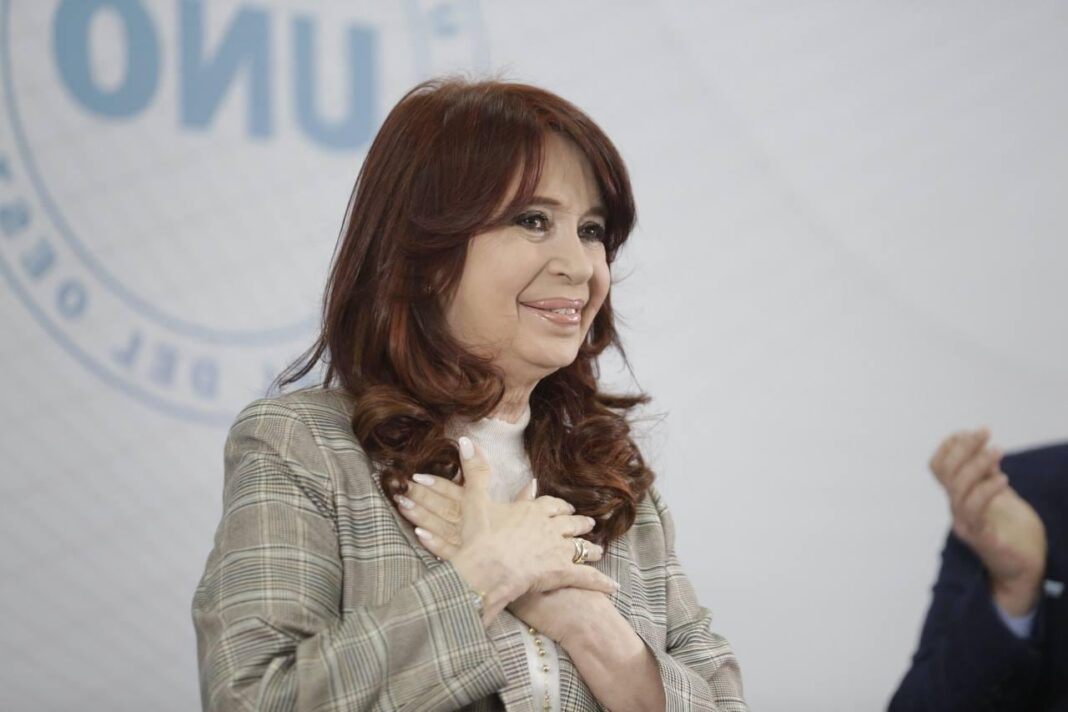BTN News: In a powerful speech in Merlo, former Argentine President Cristina Kirchner fiercely criticized the libertarian government of current President Javier Milei, accusing him of using inappropriate and violent language unfit for a nation’s leader. The confrontation follows a recent social media dispute between the two politicians over economic policy and Milei’s conduct. Kirchner expressed concern over Milei’s controversial remarks and pointed to recent allegations of child trafficking and abuse involving government officials, asserting that such behavior has no place in public discourse. This escalating political feud reflects deep divisions within Argentina, with Kirchner taking a strong stand against what she perceives as a dangerous shift in the country’s governance.
Kirchner’s Sharp Critique of Milei’s Rhetoric
At a public conference in Merlo, Cristina Kirchner did not hold back in condemning President Javier Milei for his incendiary language. She specifically took issue with phrases Milei has used, such as “we will leave them like mandrills,” “buy Vaseline,” and other expressions she described as “symbolic violence.” Kirchner emphasized the importance of a president’s words, arguing that such language is inappropriate, especially when children are listening and observing.
A Growing Concern Over Child Safety and Government Conduct
Kirchner’s criticism comes amid a troubling backdrop: the disappearance of a five-year-old boy, Loan Peña, in Corrientes, which has sparked fears of human trafficking. She highlighted this case to draw attention to what she sees as a failure of the Milei administration to address critical issues seriously. “We live in a country where a child has been missing for 90 days, presumed abducted for sexual trafficking,” she stated. Kirchner further condemned recent scandals involving lawmakers accused of possessing child abuse material, questioning how such behavior could be tolerated within government ranks.
From Twitter Wars to Public Confrontations: The Political Feud Intensifies
The conflict between Kirchner and Milei began on social media after Kirchner shared a critical essay titled It’s the Bimonetary Economy, Stupid: Contributions for an Argentine Debate, where she lambasted Milei’s first nine months in office. The online exchange quickly escalated, with both politicians trading barbs over their respective knowledge of economics and governance. This virtual spat set the stage for Kirchner’s public address in Merlo, where she labeled Milei as “lunatic” and questioned his competence to lead.
Reactions to International Economic Shifts and Local Political Comparisons
Beyond her direct attacks on Milei, Kirchner also referenced international economic events, praising the recent departure of Chilean economist Rodrigo Valdés from the International Monetary Fund (IMF). She used this as a springboard to contrast Argentina’s current economic direction under Milei’s libertarian government. Additionally, she compared Vice President Victoria Villarruel’s role and ideology to highlight what she perceives as the growing radicalization within Milei’s administration.
Kirchner Calls for Responsible Leadership and Decency in Discourse
Kirchner closed her remarks by calling for more responsible and thoughtful leadership in Argentina. “The words of a president are important,” she asserted, stressing that public figures must avoid language that contains either symbolic or explicit violence. She urged political leaders to focus on real issues facing the country, like economic instability, public safety, and social justice.
The Fallout: What’s Next in This Political Showdown?
The escalating tensions between Cristina Kirchner and Javier Milei underscore the stark ideological divide in Argentina’s political landscape. As this feud continues to unfold, it remains to be seen how it will impact the nation’s governance and public opinion. The next chapters in this unfolding drama could further shape Argentina’s future amid a turbulent political climate.
Conclusion:
Cristina Kirchner’s forceful rebuke of President Javier Milei’s rhetoric marks a significant moment in Argentina’s political scene, highlighting a clash between differing visions for the country’s future. With critical issues like child safety, economic stability, and political decorum at stake, the ongoing confrontation between these two powerful figures will undoubtedly capture both national and international attention.


